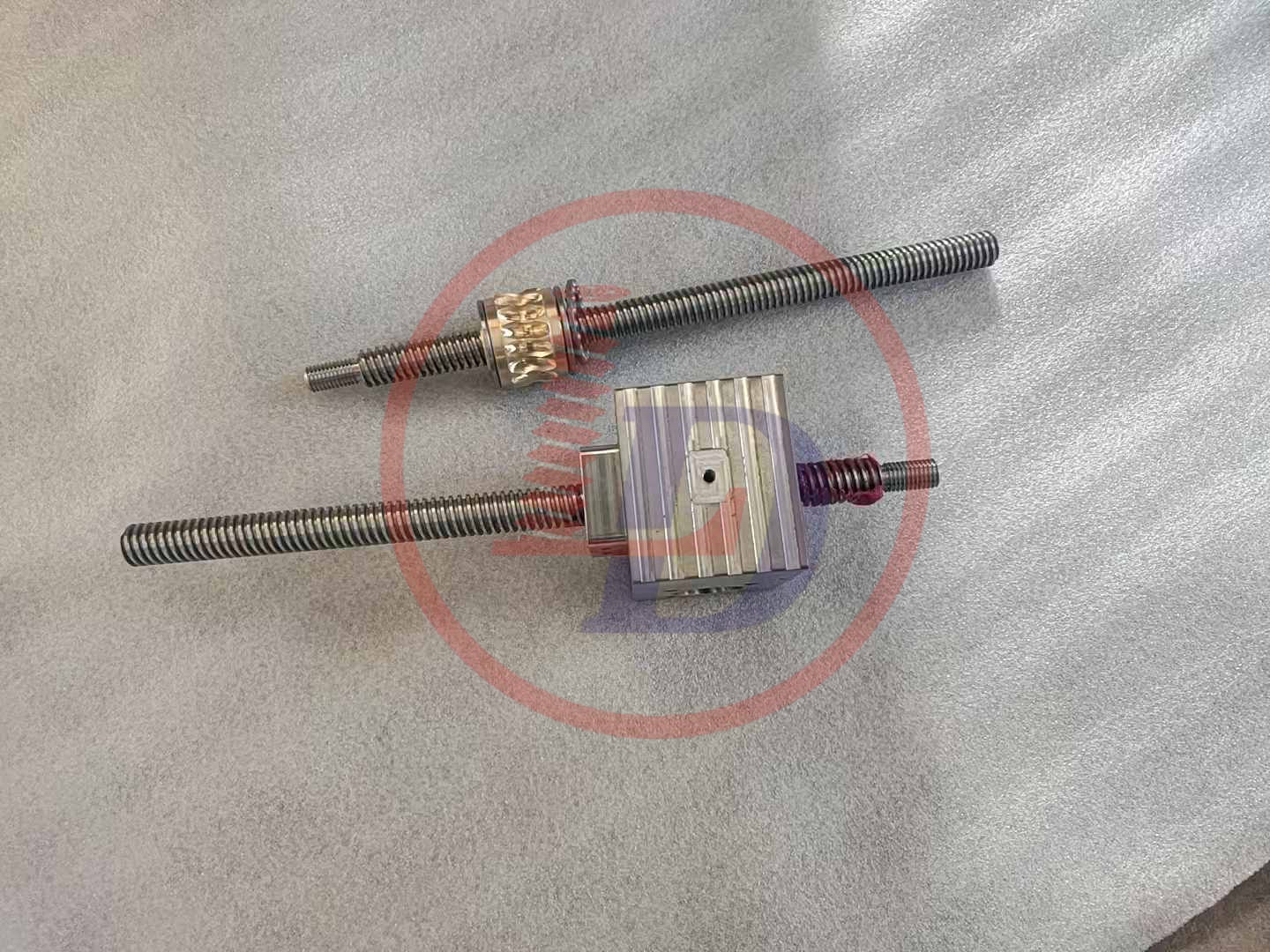Self-locking screw jacks
Oct 31 , 2025
The self-locking property of a worm gear screw jack refers to the screw's ability to maintain its load and prevent it from returning to its original position after the power source is lost. This characteristic ensures the safety of the equipment. Self-locking is a unique feature of worm gear trapezoidal screws; worm gear ball screw jacks and gear screw jacks do not possess this function.
Screw jack self-locking can be divided into mechanical self-locking and electrical self-locking. Mechanical self-locking is determined by the characteristics of the worm gear transmission. When the worm gear transmission reaches a certain speed ratio, and the lead angle of the worm is less than the equivalent friction angle between the meshing teeth, the mechanism exhibits self-locking properties, enabling reverse self-locking. This means that only the worm can drive the worm wheel, and the worm wheel cannot drive the worm. In a worm gear trapezoidal screw jack, the worm drives the worm wheel, and the threads inside the worm wheel mesh with the trapezoidal screw, thus giving the worm gear trapezoidal screw jack a self-locking effect.
Electrical self-locking is achieved through a brake motor, brake, or other braking devices, ensuring that the braking torque is greater than the holding torque. Worm gear ball screws, trapezoidal gear screws, and gear ball screws all lack self-locking functionality. Furthermore, the self-locking mechanism of worm gear trapezoidal screw jacks may fail under conditions of significant impact or continuous vibration; in such cases, the motor must be equipped with a holding brake or an additional braking device.

